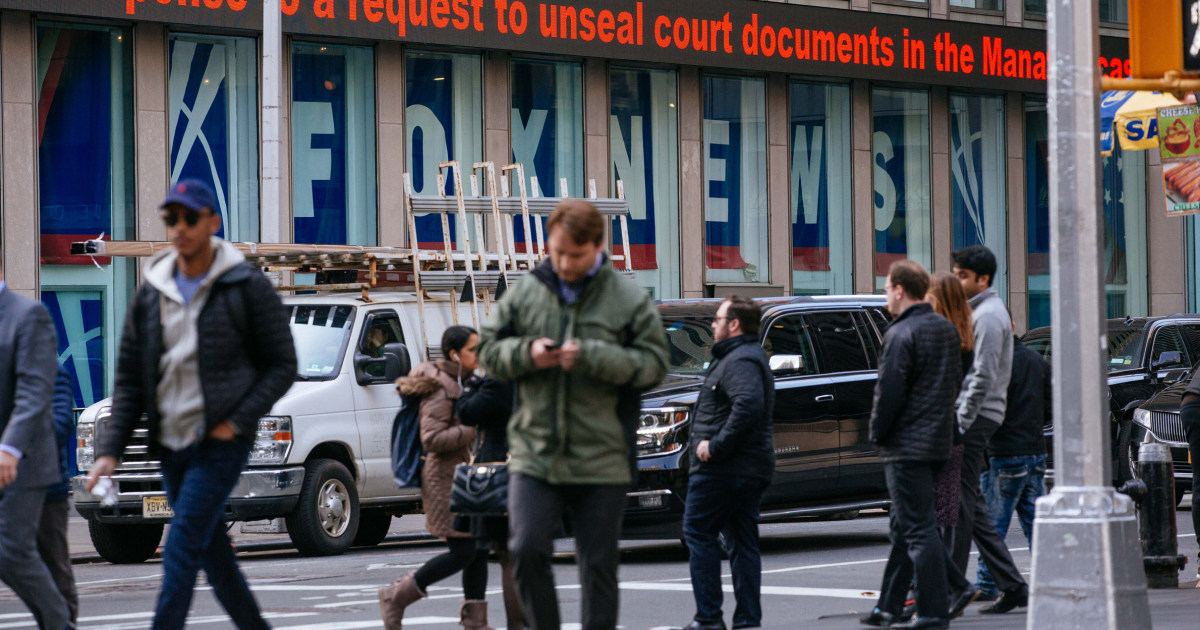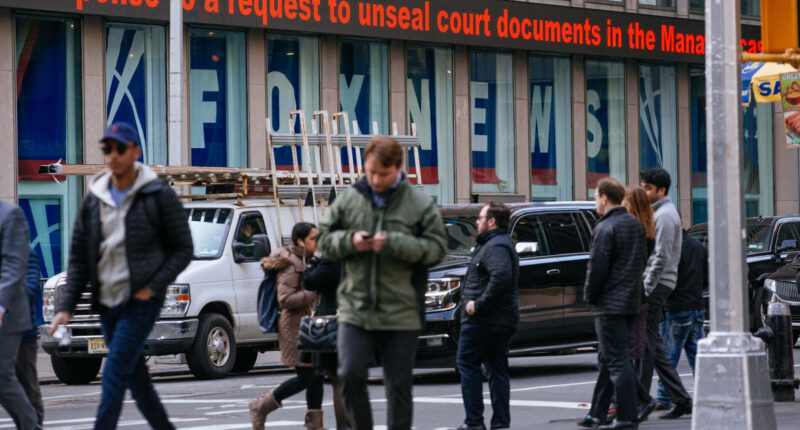
Lawyers for Dominion Voting Systems and a group of media outlets argue that Fox News abused the redaction process and blacked out more than is warranted in the thousands of pages of legal filings and evidence made public in the defamation case it’s facing.
The new court filings call for the release of pages of evidence that Fox lawyers want to keep secret.
The redactions are displayed as large chunks of blacked-out text in legal filings and evidence made public in Dominion’s $1.6 billion defamation lawsuit against Fox News and Fox Corp. If Delaware Superior Court Judge Eric Davis agrees with the arguments by Dominion and the media organizations, he could unseal the once-secret passages before March 21.
Parties are allowed to designate information like private contact details and trade secrets as confidential in such legal filings, said attorneys for Dominion and a trio of media outlets — The New York Times, The Associated Press and National Public Radio. But they argued that the Fox attorneys overdid it.
“Dominion’s position is that confidential treatment of these materials is not warranted under the good cause standard” defined in a case between Al Jazeera and AT&T, the voting machine company’s lawyers wrote in their notice. In 2013, the judge in the case overruled corporations seeking to keep significant parts of trial evidence confidential.
The media outlets argued in their court filing, also from Thursday, that Fox was claiming the redactions were meant to shield trade secrets. Journalistic processes, they outlets said, are well-known and taught.
“Adding the word ‘proprietary’ to ‘journalistic process’ does not, by itself, make a process a protected ‘trade secret,'” an attorney for the media outlets wrote.
A spokesperson for Fox News said in a statement that “Fox’s redactions are consistent with the law and court rulings,” adding, “Such grounds include redactions in accordance with the reporters’ privilege.”
The new court filings by Dominion and the media outlets suggest that the redactions may be concealing important evidence, said RonNell Andersen Jones, a professor at the University of Utah College of Law who specializes in the First Amendment.
“There are some hints in the main filing from Dominion that the redacted portions could contain really crucial evidence of knowing falsity,” Andersen Jones said in an interview, pointing to a paragraph of blacked-out material in Dominion’s motion for summary judgment on liability. “At the end of the paragraph the lawyers in Dominion say, ‘Exactly.'”
Dominion isn’t objecting to redacting phone numbers and email addresses in the challenge or in another filed previously; instead, it is protesting the “substantive” challenges.
Dominion sought just six “substantive” redactions in the more than 900 exhibits of evidence attached to filings, the company’s lawyers said in Thursday’s filing. Those redactions included images of proprietary software, a web address to an internal customer support database and names covered by nondisclosure agreements under seal. The rest of the redactions were sought by Fox, they said.
They also argued that Fox News’ redactions were sometimes inconsistent, with certain deposition testimony having been redacted in one place but not another.
Daxton Stewart, a journalism professor at Texas Christian University who teaches media law, said the challenge suggests Dominion believes Fox is using the redactions to shield itself from bad press.
“There’s a bit of litigation happening in the press,” he said. “The parties, particularly Dominion, are pretty clearly trying to establish their case as much as possible in advance of trial.”
Source: | This article originally belongs to Nbcnews.com









